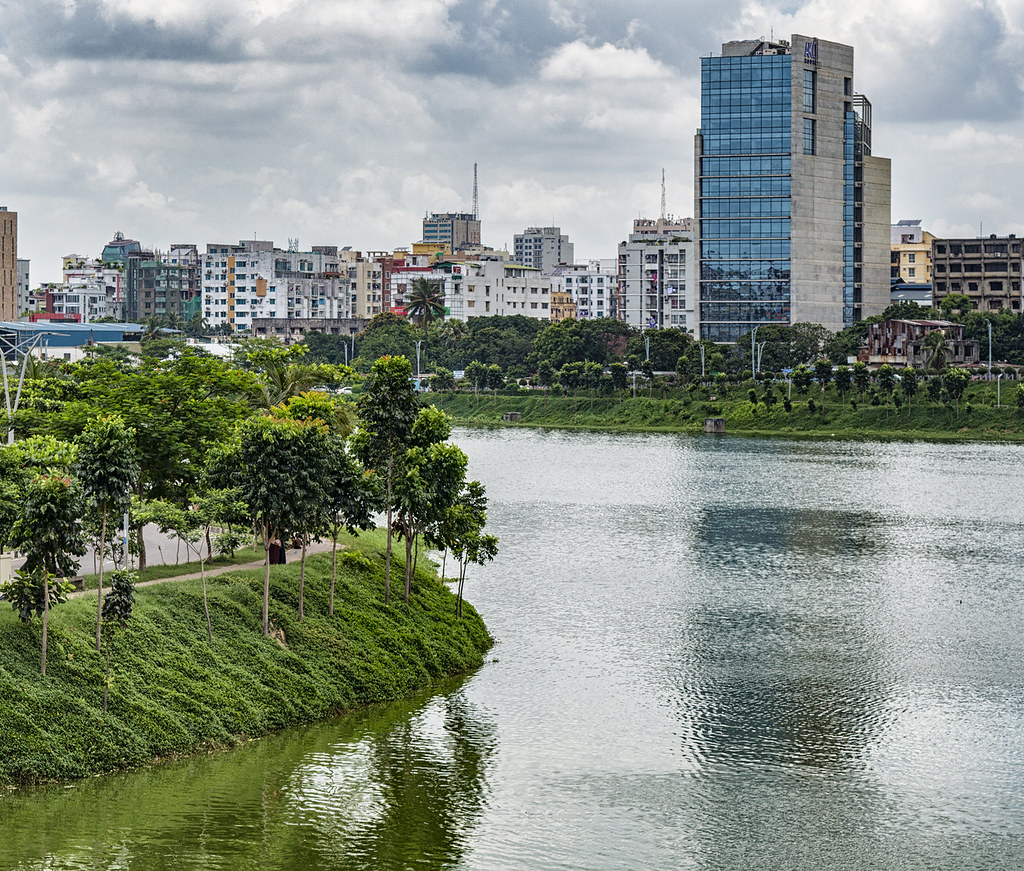Dhaka may disappear in the Bay of Bengal within 80 years: WEF2020
By 2050, about 17 percent of Bangladesh's land will go underwater in the Bay of Bengal and cause the displacement of about 18 million Bangladeshi citizens, said the report of World Economic Forum (WEF2020).

- Country:
- Bangladesh
Dhaka, the capital of Bangladesh may go under seawater by the year 2100, warned climate scientists. The prediction is based on rising sea level and sinking earth surface in the city.
“Oceans could flood 17 percent of Bangladesh's land and displace about 18 million of its citizens by 2050,” warned a report of the World Economic Forum (WEF2020). The global think tank has also issued similar caution to 10 more cities of the world which could disappear by 2100 C.E. They are Jakarta in Indonesia, Lagos in Nigeria, Houston in Texas, Dhaka in Bangladesh, Venice in Italy, Virginia Beach in Virginia, Bangkok in Thailand, New Orleans in Louisiana, Rotterdam in the Netherlands, Alexandria in Egypt, and Miami in Florida. The forum has identified two primary reasons for the gradual disappearing of these low-lying coastal cities – increasing sea levels slowly encroaching upon their coasts and sinking of earth's surface due to excessive extraction of groundwater. According to researchers, over-extraction of the ground creates a pressure difference that caused land sinking and cave-ins.
In the report, Dhaka has been kept at fourth position among 11 sinking cities of the world but is the only city of South Asia facing extinction by the end of the 21st Century. However, Jakarta, the capital of southeast Asian nation Indonesia has been identified as the fastest sinking city of the world. According to the report, Jakarta is going undersea at a rate of 6.7 inches per year due to excessive groundwater extraction. About 40 percent of Jakarta has been submerged under seawater and climate scientists have predicted 'most parts of the city would submerge underwater by 2050'. “The Indonesian government recently approved a plan to move the capital 100 miles away from its current location on the island of Java in order to protect its 10 million residents from more flooding. The move would take about 10 years and cost $33 billion,” said the report.
Mike Steckler of Columbia University who is studying the rate of sinking of Dhaka Delta through 50 GPS sites, said, “All deltas sink, increasing the effect of sea-level rise. We are trying to understand the processes and rates. My role in this large project is to develop a better understanding of subsidence, the sinking of the delta,”. He, however, is of the view that despite dire predictions for the future of Bangladesh, the delivery of fresh sediments from the Ganges and Brahmaputra Rivers is helping the country keep pace with sea-level rise. “However, the future depends on whether India and China proceed with dams and river diversions upstream,” he added. The climate scientists throughout the globe are concerned with rising sea levels causing by global warming and sinking earth surface caused by over-extraction of groundwater which is advancing the sinking of cities situated in the coastal areas. The United Nations has adopted Climate Action as Sustainable Development Goal (SDG13) to reduce global warming. Besides, projects are also being implemented for sustainable water pumping and water harvesting.
Dhaka city was the political capital of the Sen Kingdom that ruled almost entire Bengal including Bangladesh and West Bengal in 11th -12th Century C.E. Thereafter, during the Mughal dynasty it was the provincial capital of Bengal. After the partition of India in 1947, it became the provincial capital of East Pakistan and is the political capital of Bangladesh since its freedom in 1971. With 20.2 million people, Dhaka is the sixth most densely populated city in the world.
ALSO READ
Trump Eyes Greenland: Strategic Moves at World Economic Forum
US may announce members of Gaza Board of Peace during World Economic Forum: Report
Davos Transforms for World Economic Forum 2026 Amid Tight Security
Davos under lockdown as World Economic Forum opens today
Historic Milestone: Assam CM Represents State at World Economic Forum










